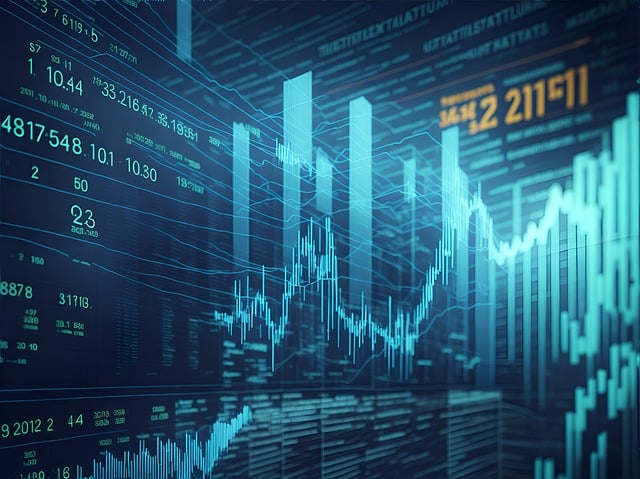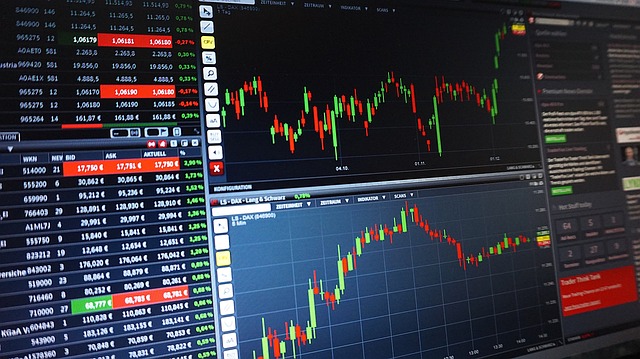The Rise of Automated Trading Bots: Revolutionizing the Financial Markets
In the ever-evolving landscape of finance and investment, the advent of technology has led to significant transformations, particularly with the introduction of automated trading bots. These software programs utilize algorithms to execute trades on behalf of investors, making decisions based on pre-defined criteria. While some investors embrace automated trading for its efficiency and speed, others express skepticism regarding its efficacy and ethical implications. In this article, we will explore the multifaceted world of automated trading bots, their benefits and drawbacks, and my personal perspectives on this fascinating topic.

Understanding Automated Trading Bots
To grasp the full impact of automated trading bots, it's essential to understand what they are and how they function. At their core, these bots are computer programs designed to analyze market data and execute trades automatically. They operate 24/7, can process vast amounts of information in real-time, and can execute trades within milliseconds. However, their effectiveness hinges on the underlying algorithms and market conditions.
How Automated Trading Bots Work
Automated trading bots rely on algorithms that dictate their trading strategies. These strategies can vary widely and may include:
- Trend Following: Buying assets that show upward momentum and selling those that are declining.
- Arbitrage: Taking advantage of price discrepancies across different markets or exchanges.
- Market Making: Providing liquidity to the market by placing buy and sell orders simultaneously.
- Mean Reversion: Assuming that prices will revert to their historical averages.
Investors configure these bots based on their risk tolerance, investment goals, and trading preferences. Some bots can be programmed to follow complex strategies, while others are more simplistic.
The Role of Artificial Intelligence
As technology advances, many modern trading bots are incorporating elements of artificial intelligence (AI) and machine learning. This allows them to adapt their strategies based on historical data and emerging market trends. For instance, these AI-driven bots can analyze sentiment from news articles or social media, giving them insights that traditional algorithms may overlook. However, the question arises: Can AI truly outperform human intuition? Personally, I believe that while AI can process data quicker, it may still lack the nuanced understanding that human traders possess.
Benefits of Automated Trading Bots
There are numerous advantages associated with the use of automated trading bots. Below are a few key benefits:
1. Speed and Efficiency
One of the most significant advantages of automated trading bots is their speed and efficiency. They can execute trades within milliseconds, capitalizing on market opportunities that may be missed by human traders. This speed translates to enhanced trading performance and the potential for higher profits.
2. Emotional Discipline
Human emotion can often cloud judgment, leading to impulsive decision-making when trading. Automated trading bots operate solely based on data and predefined strategies, eliminating emotional bias. Personally, I find this aspect particularly appealing, as it aligns with the notion that successful trading should be rooted in logic rather than feelings.
3. Backtesting and Strategy Optimization
Traders can backtest their strategies using historical data to evaluate their performance. Automated bots make this process seamless, offering insights into what strategies have worked in the past. This ability to optimize strategies can provide a significant competitive advantage in volatile markets.
Challenges and Risks of Automated Trading Bots
Despite their many advantages, automated trading bots also present challenges and risks that traders must acknowledge. Understanding these risks is essential for anyone considering the use of such technology.
1. Market Volatility
Automated trading bots are susceptible to market volatility. Rapid price movements can lead to unforeseen losses, especially if a bot is not programmed to handle sudden changes effectively. My personal opinion is that traders should remain vigilant and not fully rely on automation, especially in highly volatile markets.
2. Misaligned Strategies
Not all market conditions are suitable for automated strategies. A bot designed for trending markets may perform poorly in range-bound conditions. This misalignment can lead to significant losses. Hence, traders must continually assess and adjust the bot’s strategies to remain relevant.
3. Technical Issues
Automated systems are not immune to technical glitches. Server downtimes, software bugs, or connectivity issues can derail trading efforts. In my view, it's crucial for traders to have contingency plans in place and to maintain a level of oversight over their trading bots.

Choosing the Right Automated Trading Bot
For those interested in integrating automated trading bots into their investment strategies, choosing the right bot is crucial. Here are several key factors to consider:
1. Reputation and Reviews
Before selecting a bot, conduct thorough research. Look for user reviews and testimonials to gauge the bot’s performance and reliability. Industry reputation can also provide insight into how well-established and trusted a bot is. Personally, I think this step is non-negotiable; a bot should come from a reputable developer to ensure safety and reliability.
2. Flexibility and Customization
Good trading bots allow for the customization of strategies based on individual risk preferences and market conditions. A bot that offers flexibility in its programming can adapt to your specific trading style. Flexibility is essential; I believe a one-size-fits-all approach rarely yields the best results.
3. Fees and Costs
Cost is another factor to consider. Some bots charge a one-time fee, while others operate on a subscription model. It’s essential to weigh the costs against the potential benefits. Ultimately, you want to ensure that the bot you choose provides value for the money you invest.
The Ethical Implications of Automated Trading
As we delve deeper into the world of automated trading, ethical considerations become increasingly important. Many are concerned about the potential for market manipulation, particularly when sophisticated traders use bots to exploit market inefficiencies. In my opinion, regulatory frameworks need to be adapted to ensure that automated trading technologies are utilized responsibly. Financial markets should be fair and transparent, and all participants must play by the same rules.
Conclusion: Embracing the Future of Trading
In conclusion, automated trading bots represent a significant advancement in the financial markets. They offer speed, efficiency, and the ability to execute systematic trading strategies without the emotional baggage that human traders often carry. However, these bots are not a silver bullet; they come with their own set of risks and challenges that must be understood and managed effectively.
As we move forward, I believe the future of trading will undoubtedly incorporate more automation and advanced technologies. While I appreciate the benefits of automated trading, I also believe that a balanced approach, combining both automated systems and human intuition, will yield the best results. This hybrid model could very well generate a more sustainable and rewarding trading experience for investors in the long run.
Whether you are an experienced trader or just starting out, the integration of these bots into your investment strategy offers a myriad of possibilities. However, it is vital to approach this technology with informed caution and an understanding of both its capabilities and limitations.